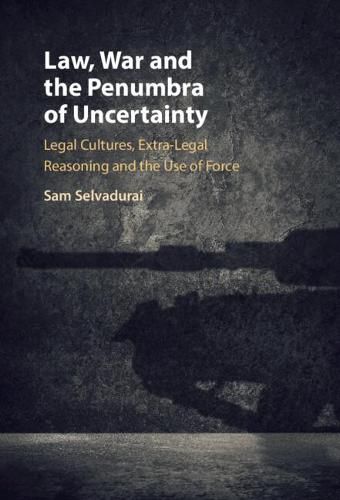Readings Newsletter
Become a Readings Member to make your shopping experience even easier.
Sign in or sign up for free!
You’re not far away from qualifying for FREE standard shipping within Australia
You’ve qualified for FREE standard shipping within Australia
The cart is loading…






This book argues that lawyers must often rely on contestable ethical and strategic intuitions when dealing with legal and factual uncertainties in ‘hard cases’ of resort to force. This area of international law relies on multiple tests which can be interpreted in different ways, do not yield binary ‘yes/no’ answers, and together define ‘paradigms’ of lawful and unlawful force. Controversial cases of force differ from these paradigms, requiring lawyers to assess complex, incomplete factual evidence, and to forecast the immediate and long-term consequences of using and not using force. Legal rules cannot resolve such uncertainties; instead, techniques from legal risk management, strategic intelligence assessment and political forecasting may help. This study develops these arguments using the philosophy of knowledge, socio-legal, politico-strategic and ethical theory, structured interviews and a survey with 31 UK-based international lawyers, and systematic analysis of key International Court of Justice cases and scholarly assessments of US-led interventions.
$9.00 standard shipping within Australia
FREE standard shipping within Australia for orders over $100.00
Express & International shipping calculated at checkout
This book argues that lawyers must often rely on contestable ethical and strategic intuitions when dealing with legal and factual uncertainties in ‘hard cases’ of resort to force. This area of international law relies on multiple tests which can be interpreted in different ways, do not yield binary ‘yes/no’ answers, and together define ‘paradigms’ of lawful and unlawful force. Controversial cases of force differ from these paradigms, requiring lawyers to assess complex, incomplete factual evidence, and to forecast the immediate and long-term consequences of using and not using force. Legal rules cannot resolve such uncertainties; instead, techniques from legal risk management, strategic intelligence assessment and political forecasting may help. This study develops these arguments using the philosophy of knowledge, socio-legal, politico-strategic and ethical theory, structured interviews and a survey with 31 UK-based international lawyers, and systematic analysis of key International Court of Justice cases and scholarly assessments of US-led interventions.